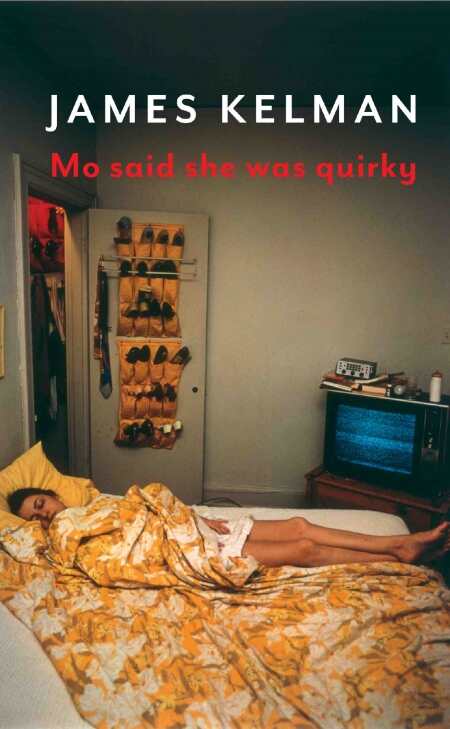Mo Said She Was Quirky
The Scottish writer James Kelman is known for producing challenging short stories and novels containing stream-of-consciousness narrative as thick as the brogue of his countrymen. In How Late It Was, How Late, winner of the 1994 Booker Prize, a shoplifting ex-con coming off a drinking binge is badly beaten by soldiers and ends up completely blind. The resulting narrative, told entirely in the main character’s vernacular, posed more than a little difficulty for readers.
By contrast, Kelman’s new novel, Mo Said She Was Quirky, is completely accessible and features a much more sympathetic protagonist. Helen, a twenty-seven-year-old native of Glasgow, works the night shift as a croupier in a West End London casino and lives in a tiny flat with Sophie, her six-year-old daughter, and Mo, her Anglo-Pakistani Muslim boyfriend.
As the novel opens, Helen, on her way home in a taxi, spots a pair of homeless men shuffling across the street and suddenly realizes the tall, thin man is her brother, Brian, whom she’s not seen in twelve years: “Brian at the traffic lights, that look in his eye, it was wild. Why was he staring at her? It was horrible. He didnt know her. If he had it would have been different, he wouldnt have seemed so murderous and dangerous. Because that is how he was to the others; that was how he appeared; murderous and dangerous. Not to her. Of course not, not at all. Because she knew who he was and if he had known it was her, if he had he would have looked at her differently.”
This random event is the catalyst for Helen’s stream-of-consciousness reflections over the next twenty-four hours, as she sits beside her sleeping daughter. Helen’s too agitated to sleep herself; her thoughts race over memories of a broken family back in Scotland, a disastrous marriage to a brute known only as “her ex,” and the relative comforts provided by her live-in boyfriend, Mo. Kelman deftly inhabits this downtrodden, working-class woman’s mind, capturing in largely unpunctuated prose her fierce maternal impulses and sadness for the world at large: “Sad thoughts, sadness about the thoughts; the thoughts were not sad in themselves, the sadness was from thinking about them, their lives, their lives were just poor, poor lives, the casino too and the people she saw and encountered day in day out, night after night after night, frittering and superficial and some horrible, just horrible, horrible people and all their horrible attitudes, going out into the night, avoiding their shadows, the back alleys and side streets, they didn’t want to know about them.”
Although little happens in Mo Said She Was Quirky (great title!), we become intimately involved with this young woman so devoid of self-pity and clear-eyed about her station in life. Fans of original fiction and “day in the life of” novels like Mrs. Dalloway will enjoy Kelman’s latest work.
Reviewed by
Lee Polevoi
Disclosure: This article is not an endorsement, but a review. The publisher of this book provided free copies of the book to have their book reviewed by a professional reviewer. No fee was paid by the publisher for this review. Foreword Reviews only recommends books that we love. Foreword Magazine, Inc. is disclosing this in accordance with the Federal Trade Commission’s 16 CFR, Part 255.


